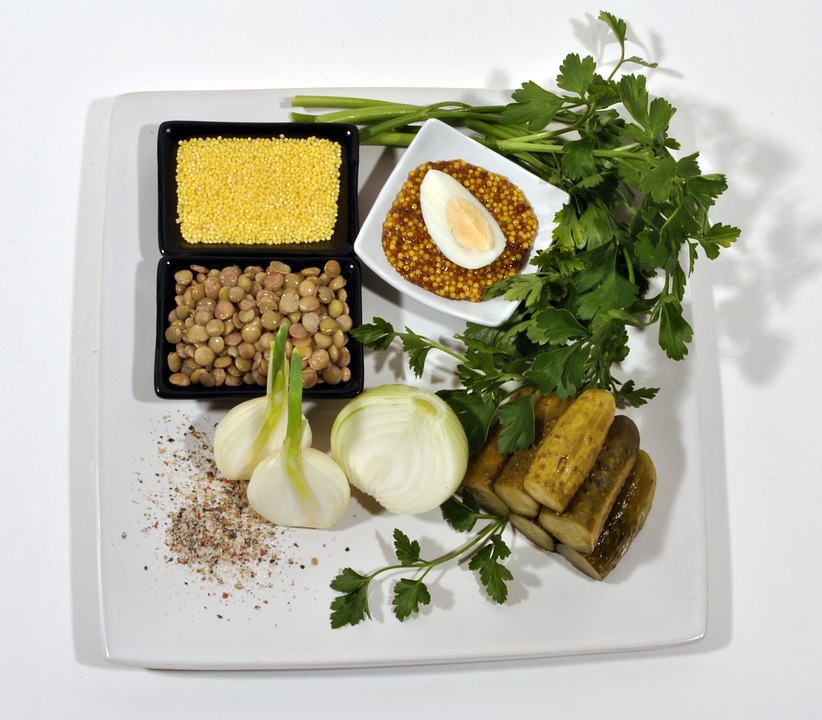The question of whether rabbits can safely enjoy cilantro has been a source of much debate among rabbit owners and veterinary experts. While this fragrant herb may be a staple in human kitchens, its suitability for rabbits requires careful consideration due to its potential risks. This article will provide a detailed examination of cilantro's nutritional content, its effects on rabbit health, and offer a comprehensive guide to help you determine if this herb is a safe and suitable addition to your bunny's diet.
Part 1: Unveiling the Secrets of Cilantro

1.1. Cilantro: A Culinary Gem
- Cilantro, also known as coriander, is a beloved herb globally cherished for its distinctive, fresh, and slightly citrusy flavour.
- This aromatic foliage, originating from the Coriandrum sativum plant, boasts a rich history in culinary traditions, adding a vibrant touch to dishes across the globe.
- Both the leaves (cilantro) and seeds (coriander) are used for their distinct culinary properties. The leaves, with their delicate, feathery texture, are frequently used as a garnish or added to sauces, salsas, and chutneys.
1.2. Nutritional Powerhouse: Understanding Cilantro's Value
- Cilantro is a treasure trove of essential vitamins and minerals, contributing to a balanced and nutritious diet.
- It stands out for its high content of Vitamin K, a vital component for blood clotting and strong bones.
- Cilantro also boasts a generous supply of Vitamins A, C, and E, renowned for their antioxidant properties, supporting immune function and protecting against cellular damage.
- This herb is a valuable source of minerals such as potassium, iron, and magnesium, essential for maintaining electrolyte balance, supporting red blood cell production, and regulating muscle function, respectively.
- Cilantro is a good source of dietary fibre, promoting healthy digestion and aiding in regular bowel movements.
Part 2: Exploring Cilantro's Impact on Rabbit Health

2.1. Cilantro: A Dietary Dilemma for Rabbits
- While cilantro may be a delightful addition to human meals, its suitability for rabbits remains a subject of debate and caution.
- The general consensus among veterinary professionals is that cilantro is not a suitable staple food for rabbits.
- Rabbits, being herbivores with delicate digestive systems, thrive on a diet predominantly composed of hay, fresh vegetables, and a small amount of pellets.
- Although cilantro may not be toxic to rabbits, its high oxalate content poses a significant concern and may lead to potential health risks.
2.2. The Hidden Dangers: Oxalate and Digestive Issues
2.2.1. Oxalates: A Potential Kidney Threat
- Cilantro contains a notable amount of oxalates, compounds that can bind to calcium within the body, potentially leading to the formation of kidney stones.
- Rabbits are inherently prone to urinary tract issues due to their distinctive anatomical structure and dietary needs.
- Excessive consumption of oxalate-rich foods like cilantro can exacerbate these vulnerabilities, increasing the risk of urinary problems, kidney stones, and other complications.
2.2.2. Digestive Distress: The High Fibre Challenge
- The high fibre content in cilantro can also be problematic for rabbits with sensitive digestive systems.
- Excess fibre can disrupt the delicate balance in a rabbit's gut, leading to digestive upset, bloating, and diarrhoea.
- Introducing any new food, including cilantro, gradually and in small quantities is crucial to monitor your rabbit's reaction and ensure their digestive system can adapt comfortably.
Part 3: Navigating the Introduction of Cilantro to Your Rabbit's Diet
3.1. The Importance of Moderation: A Tiny Treat, Not a Feast
- If you decide to introduce cilantro to your rabbit's diet, extreme caution and moderation are paramount.
- Only offer a minuscule amount as a rare treat, and diligently observe your rabbit for any adverse reactions.
- Cilantro should never become a significant part of your rabbit's diet; it's best to stick to their core diet of hay, fresh vegetables, and a small amount of pellets.
- Consulting your veterinarian before introducing any new foods, including cilantro, is always recommended to ensure their approval and to address any potential concerns specific to your rabbit's health history or individual needs.
3.2. Preparing Cilantro: Ensuring a Safe and Enjoyable Experience
- Always thoroughly wash cilantro under running water to remove any lingering dirt, pesticides, or contaminants before offering it to your rabbit.
- Chop or tear the leaves into small, bite-sized pieces, making them easier for your rabbit to consume and digest.
- Avoid giving your rabbit cilantro stems or roots as these are generally harder to digest and may cause digestive upset.
Part 4: Recognizing the Warning Signs: Detecting Cilantro Toxicity
4.1. Monitoring for Adverse Reactions: A Vigilant Approach
- It's crucial to remain vigilant and closely monitor your rabbit for any signs of adverse reactions after they consume cilantro.
- Common symptoms to watch out for include:
- Diarrhoea: Loose or watery stools, potentially with increased frequency
- Vomiting: Expulsion of stomach contents, which can be alarming in rabbits
- Lethargy: A decrease in energy levels, appearing sluggish or less active
- Loss of Appetite: A decrease in interest in food, potentially refusing to eat their usual diet
- Increased Urination: More frequent urination, potentially indicating changes in bladder function
- Blood in the Urine: A noticeable presence of blood in urine, a clear indication of potential urinary tract issues
4.2. Prompt Action: Seeking Veterinary Care
- If you observe any of the above symptoms after your rabbit has consumed cilantro, stop feeding them cilantro immediately and contact your veterinarian.
- Your veterinarian can provide guidance on the appropriate course of action, conduct a thorough examination, and determine if any further treatment is necessary.
Part 5: Exploring Safer Alternatives: Herbs that are Rabbit-Friendly
5.1. A Garden of Delights: Safe and Nutritious Herbs for Rabbits
- While cilantro may not be the ideal choice for your rabbit's diet, several safe and beneficial herbs can be offered as occasional treats.
- These include:
- Parsley: A rich source of Vitamin C and antioxidants, known to aid in digestion.
- Dill: Provides a source of antioxidants and may help promote relaxation.
- Basil: Rich in antioxidants and may aid in digestion and immune function.
- Mint: Offers refreshing breath and may aid in digestion and relaxation.
- Rosemary: Provides a source of antioxidants and may have potential health benefits for rabbits.
5.2. Introducing New Herbs: A Gradual and Cautious Approach
- Always introduce these herbs gradually and in moderation, monitoring your rabbit for any adverse reactions.
- Start with a tiny amount and gradually increase the quantity over time, ensuring your rabbit's digestive system can adapt comfortably.
Part 6: Frequently Asked Questions: Addressing Common Concerns
6.1. Can I Give My Rabbit Cilantro Leaves?
- While cilantro leaves are technically safe for rabbits in small quantities, they can pose health risks due to their oxalate content.
- It's best to avoid giving cilantro leaves to your rabbit altogether and opt for safer alternatives like parsley or dill.
6.2. Is Cilantro Stem Safe for Rabbits?
- Cilantro stems are not recommended for rabbits as they are generally harder to digest and may cause digestive issues.
- Stick to the leaves, offering them in moderation and under careful supervision.
6.3. Can Baby Rabbits Eat Cilantro?
- Baby rabbits are even more sensitive to dietary changes than adult rabbits. It's crucial to avoid giving cilantro to baby rabbits.
- Their developing digestive systems are not equipped to handle the potential risks associated with cilantro consumption.
6.4. Is Cilantro Poisonous to Rabbits?
- While cilantro is not technically poisonous to rabbits, it can pose health risks due to its oxalate content and potential for digestive upset.
- It's best to avoid giving cilantro to your rabbit altogether and focus on providing a diet rich in hay, fresh vegetables, and a small amount of pellets.
6.5. Can I Give My Rabbit Cilantro Every Day?
- No, it's not recommended to give your rabbit cilantro every day. It's best to offer it as a rare treat, in small quantities, and under careful observation.
- Regular cilantro consumption can increase the risk of oxalate buildup and digestive problems.
6.6. What Should I Do If My Rabbit Eats Cilantro?
- If your rabbit has eaten cilantro, monitor them closely for any signs of adverse reactions.
- If you observe any symptoms like diarrhoea, vomiting, lethargy, or blood in the urine, contact your veterinarian immediately.
- Provide plenty of fresh water and observe your rabbit's behaviour and appetite closely.
6.7. What Are the Best Alternatives to Cilantro for Rabbits?
- There are several safe and nutritious herbs that you can offer your rabbit as treats, including:
- Parsley
- Dill
- Basil
- Mint
- Rosemary
- These herbs provide a variety of nutritional benefits and are generally safe for rabbits when consumed in moderation.
6.8. Can I Grow My Own Cilantro for My Rabbit?
- While growing your own cilantro can be beneficial, it's essential to ensure it's free of pesticides and herbicides that can be harmful to rabbits.
- If you choose to grow your own, opt for organic methods and wash the cilantro thoroughly before offering it to your rabbit.
6.9. My Rabbit Seems to Love Cilantro, Should I Give It To Them Regularly?
- Even if your rabbit enjoys cilantro, it's vital to prioritize their overall health and well-being.
- Resisting the temptation to give them cilantro regularly is crucial for preventing potential health risks, especially considering their sensitive digestive system and susceptibility to urinary issues.
Everyone is watching
-

Do Rabbits Lay Eggs? (The Surprising Truth)
OTHER TYPES OF PETSThis article will unravel the common misconception that rabbits lay eggs, exploring the fascinating world of r...
-

Can Rabbits Eat Grapes? A Guide to Safe Rabbit Treats
OTHER TYPES OF PETSThis comprehensive guide will explore the safety and suitability of grapes for rabbits, providing detailed inf...
-

What's a Group of Rabbits Called? (A Comprehensive Guide)
OTHER TYPES OF PETSThis article delves into the fascinating world of rabbits, exploring the various terms used to describe a grou...
-

Predators That Hunt Rabbits: A Guide to Natural Enemies
OTHER TYPES OF PETSI've always been fascinated by the circle of life, that delicate dance between predator and prey. Growing up ...
-

Are Rabbits Nocturnal Animals?
OTHER TYPES OF PETSThe question of whether rabbits are nocturnal animals is a fascinating one, with a surprisingly complex answer...
